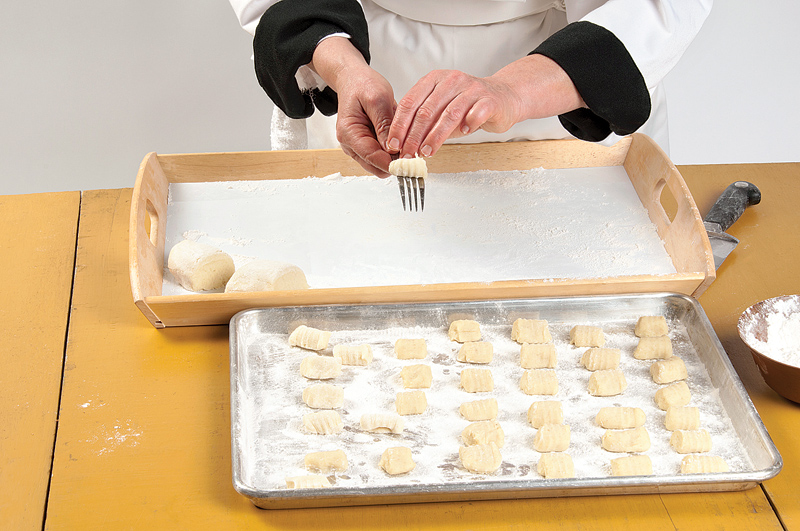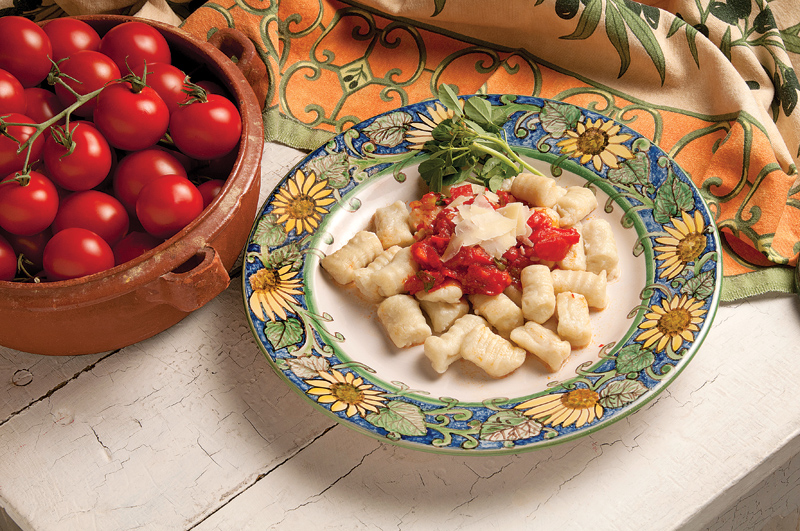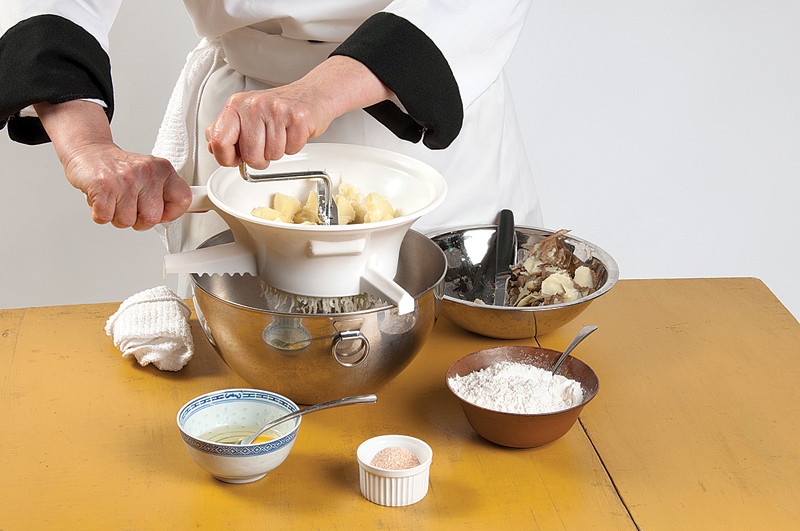Potato Gnocchi
Life is like that piece of dough; you need to work it until it becomes familiar to you.
My friend Albina Mastrangelo learned the secrets to making light and delicate gnocchi when she was a child growing up in a small town in the Calabria region of Italy. Albina’s grandmother, Nonna Maria, owned a popular trattoria in San Teodoro, where she prepared simple rustic dishes, such as freshly made pasta with beans, arancini (risotto balls filled with wild mushrooms and cheese) and meat-filled calzone.
Maria’s menu contained ingredients that she found as close as her own garden, or delivered by local merchants who supplied her with the cured meats, cheeses and sausages featured on her ever-changing menu. She did not post a menu; this very social woman liked the excuse to step out of the kitchen to greet her customers, gossip a bit, and talk about what was simmering on her back stoves. Local residents stopped by daily for their lunch, happily consuming whatever Maria cooked. Albina remembers that Nonna was famous for two things: her fabulous cooking and her great legs.
For the shy Albina, Nonna Maria’s kitchen was an inspiration centred around her cooking techniques and her secrets for a happy life. When it was time for the young Albina to make her first gnocchi dough, she recalls struggling with it, unsure about the consistency. Nonna Maria would stand beside her and reassure her: “Life is like that piece of dough; you need to work it until it becomes familiar to you. Just like in life, you will go through mistakes until you know what to do, then you will learn to trust yourself.”
Gnocchi, the Italian version of a dumpling, has been around since the 13th century. Today, it remains one of Italy’s all-time favourite comfort foods. The word gnocchi (pronounced neo-key) means “lump” in Italian, and is created with just a few ingredients found in most household kitchens. If they are prepared correctly, gnocchi will be delicate, toothsome dumplings. At their worst they can be thick and gummy tasting.
One day not long ago, I paid Albina a visit at her Brampton home. “My Canadian friends all love to eat potato gnocchi,” Albina told me over a lunch featuring freshly made gnocchi with tomato sauce made from tomatoes grown by a neighbour, “but they are so frightened to make it.”
Here are Albina’s secrets “to creating light and delicate gnocchi, just as my own Nonna taught me all of those years ago in Italy,” along with her recipes for potato and spinach gnocchi, and a quick, delicious tomato sauce. Most Italians serve gnocchi with a fresh tomato sauce or sauté the dumplings in a little olive oil and fresh herbs. The sauce should be as light and delicate as the gnocchi themselves, so they continue to be the star attraction of the dish.
Related Recipes

Step by Step Potato Gnocchi
Aug 18, 2011 | | FoodCook the potatoes in their skins, then peel afterwards. This produces a “drier” potato and increases the fluffiness of the gnocchi.








